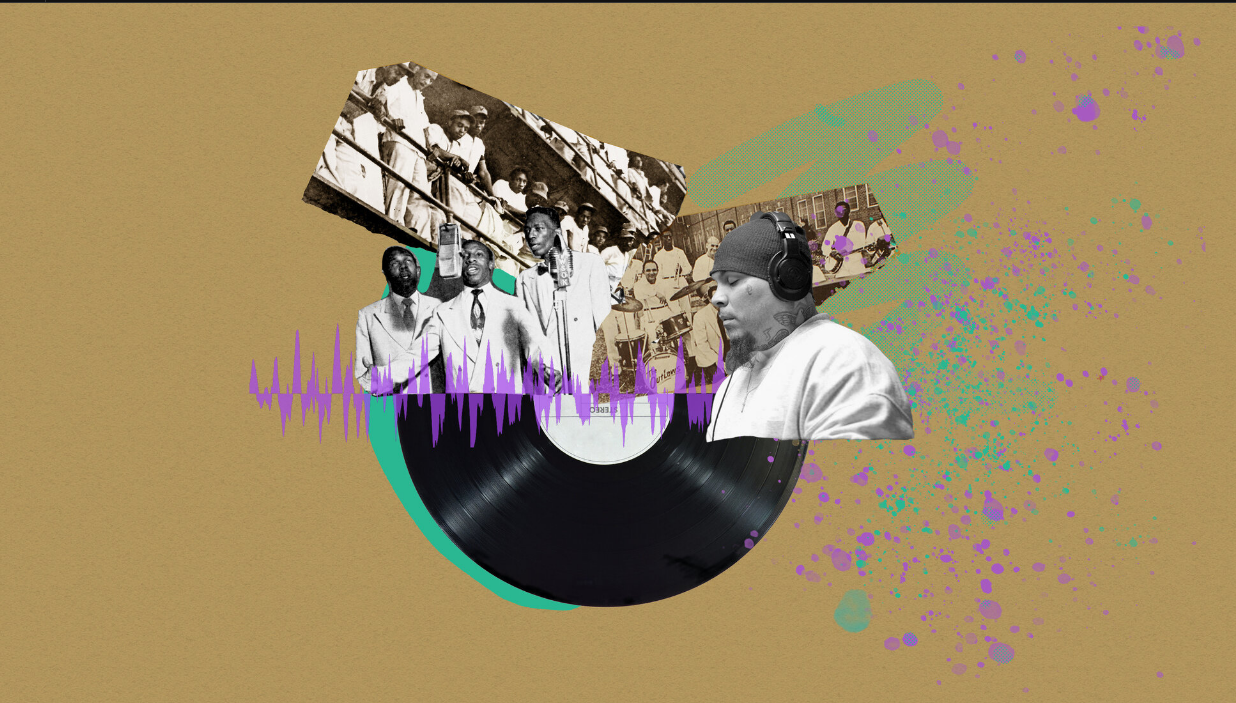The History of American Prison Music - The Marshall Project
Music made behind bars mirrors US path from rehabilitation to punishment

The following is an excerpt of an article, "Redemption Songs: The Forgotten History of American Prison Music," published on The Marshall Project website and written by Maurice Chammah. The Marshall Project is a nonpartisan, nonprofit news organization that seeks to create and sustain a sense of national urgency about the U.S. criminal justice system.
*****
America has a long history of prison music, and its power goes beyond helping those inside: This music can transform us, changing how we think about the people who make it. When the right song hits you at the right moment, you can recognize something shared with the artist. “There are things you can identify in yourself that you can also identify in them, no matter what they did,” the formerly incarcerated rapper BL Shirelle told me. “You see them for the humans they are.”
Why should you care? Because Americans have reached an impasse when it comes to the criminal justice system. There remains some bipartisan agreement that this system is bloated, expensive, discriminatory and abusive, and that our prisons too often fail at their key goal of rehabilitation (when they’re not outright deadly). But at least 600,000 people leave prisons each year, and despite talk of “second chances,” the rest of us don’t do a great job of helping them restart their lives. People often refuse to rent to them and give them jobs, which then increases the likelihood they’ll end up in prison again.
It’s easy to blame individuals for their criminal actions, but we also know there’s more to the story, and when society’s treatment of people who commit crimes is too punitive and merciless, the result is often — ironically and tragically — more crime.
Artists who served time have told me they’ve seen how their work can break this cycle, cutting past prejudices and helping other people see them as capable of redemption. “If we experience the art being created in those spaces,” Hughes said, “we will know, ‘These are human beings, and we need to rethink whether we should be throwing them away.’”
There are, of course, some in prison who don’t appear to be contrite after harming others, but in my decade of visiting prisons, I’ve found they are the exception; American prisons are full of earnest attempts at redemption. Listening to and sharing music may sound like a soft, superficial way of changing a broken system, but you can’t get policy change if you haven’t paved the way with culture.
*****
Read the full article "Redemption Songs: The Forgotten History of American Prison Music" at The Marshall Project Website. You can also listen to a curated playlist, "A Prison Music Playlist" on Spotify. You can listen in the app and also in a web browser page if you don't have the Spotify app.










